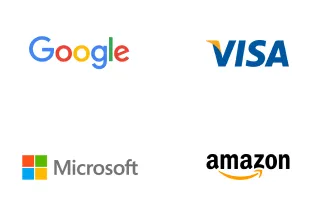Start your journey for free
Begin your learning experience and become a cloud engineer with certificate courses curated to land your dream job.
Skills Covered in this Path
- Fundamnetals of Cloud
- Cloud's Significance
- Service Models
- Abstraction Levels
- SPIDERS Freameowrk
- Cloud Architecture
- Managed Services
- Resource Allocation
- Pricing and Scaling Models
- Cloud Service Models
- Trends in Service Models
- Basics of Cloud Computing
- Cloud Computing Platforms
- Types of cloud deployment
- Cloud Computing Architecture
- Amazon Web Services
- Microsoft Azure
- Google Cloud Platform
- Cloud Virtualization
- Cloud Centralization
- Distributed Computing
- Cloud Applications
- Cloud Computing fundamentals
- AWS fundamentals
- AWS Management
- Understanding IaaS PaaS SaaS
- Cloud Deployment Models
- AWS Global Infrastructure
- AWS Core Services
- AWS Compute Services
- Scalability
- Flexibility
- Cost
- Security
- AWS Cloud Storage
- Database Services on AWS
- Understanding how to build an app on AWS
- Deploying the App
- Building chatbots in Azure
- Building websites using Azure
- Cloud computing
- Cloud service providers
- GCP global infrastructure
- Google Cloud Storage services
- Linux Fundamentals
- Operating System Basics
- Linux Installation & Setup
- Linux Architecture & Components
- Linux Distributions Overview
- Linux vs. Unix Distinctions
- Linux Interface Familiarity
- Basic Command Proficiency
- Essential Linux Functionalities
- DevOps Fundamentals
- Version Control With Git
- Containerization Using Docker
- Continuous Integration
- Jenkins Setup
- DevOps Lifecycle
- Automation Practices
- Software Deployment
- Monitoring Tools
- Collaboration In DevOps Teams
- Docker
- Docker Best practices
- Optimizing Docker Files
- Docker
- Docker Storage
- Docker Network
- Docker Compose
- Docker
- grafana
- prometheus
- Docker Monitoring
- Docker
- Docker swarm
- Orchestration
- AWS ECR
- AWS ECS
- Docker
- grafana
- prometheus
- Docker Monitoring
- Spring boot
- Deployment
- Containerization
- YAML files
- Kubernetes Architecture
- Splunk Index Creation
- Splunk Data Searching
- Splunk Basics
- Rank of a matrix
- echelon form
- solving linear equations
- Gauss-Elimination
- Gauss-Jordan
- Gauss-Seidel methods
- eigenvalues and eigenvectors
- Rayleigh’s power method
- and diagonalization techniques
- Object-Oriented Programming
- Classes
- Objects
- Methods
- Inheritance In Java
- Jenkins
- Continuous Integration
- Version Control
- Git
- GitHub
- Git Vs GitHub
- Accessing GitHub
- Touring GitHub
- Creating Repository
- Committing Changes
- Branching
- Merging
- Pull Requests
- Basic Git Workflow
- Creating Git Profile































